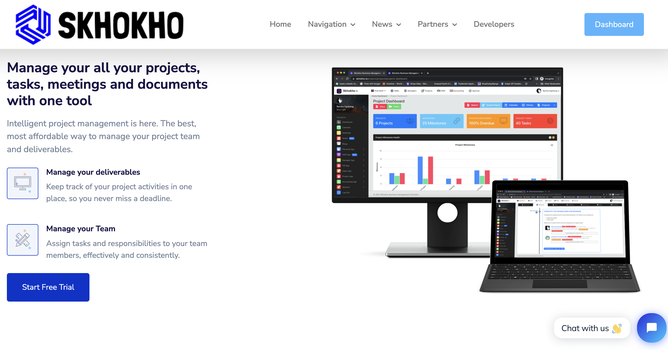5 Tips for Working Smart, Not Hard: Mastering the Art of Time Management in a Business
The concept of working smart, not hard, has gained tremendous significance. Gone are the days when long hours and sheer effort were considered the key to success. Instead, it is now widely recognized that effective time management is the true secret to productivity and accomplishment. Time management plays a pivotal role in every aspect of business. Whether you're an entrepreneur, a manager, or an employee, your ability to optimize your time directly impacts your productivity, efficiency, and ultimately, your success. It allows you to make the most of your resources, focus on critical tasks, and achieve your goals in a timely manner.

In this blog, we will delve into five practical tips that will help you master the art of time management in a business setting. These tips are designed to empower you to work smart, not hard, and take control of your time.
So, if you're ready to unlock the secrets of time management and maximize your productivity, join us as we explore these practical tips. Get ready to transform the way you work and achieve new levels of success in your business endeavors.
Tip 1: Assessing Your Current Time Management Skills
Effective time management begins with self-awareness and a deep understanding of your current time management habits. By assessing your existing practices, you can identify areas for improvement and lay the foundation for better time management.

Here are some key points to consider:
- Importance of Self-awareness: Self-awareness is the first step towards enhancing your time management skills. By being aware of how you currently manage your time, you can identify strengths and weaknesses, and make informed decisions about areas that need improvement. Take the time to reflect on your daily routines, work habits, and productivity levels.
- Reflect on Current Practices: Take a moment to reflect on how you currently approach your tasks and manage your time. Are you easily distracted? Do you tend to procrastinate? Do you struggle with prioritization? Recognizing these patterns and behaviors will help you pinpoint specific areas that require attention and improvement.
- Track and Analyze Time Usage: Consider implementing time-tracking methods to gain insights into how you spend your time. Use tools like My Tasks on Skhokho personal app or even a simple spreadsheet to record the duration and nature of your tasks. This data will help you identify patterns, unproductive time sinks, and areas of inefficiency.
- Assessing and Evaluating Skills: To effectively assess your time management skills, ask yourself the following questions:
- Are you setting clear goals and priorities?
- Are you estimating task durations accurately?
- Do you have a structured plan or schedule in place?
- How well do you handle interruptions and distractions?
- Are you effectively utilizing tools and resources available to you?
Remember, self-awareness is an ongoing process. Regularly review and reassess your time management practices to adapt to evolving circumstances and refine your skills. By taking the time to assess and evaluate your current approach, you set the stage for significant improvements in your time management abilities.
Tip 2: Setting Clear Goals and Priorities
Setting clear goals and priorities is essential for efficient time management. It provides direction, focus, and a sense of purpose in your work.

Here are key points to consider when it comes to goal setting and prioritization:
Significance of Clear Goals and Priorities:
Clear goals and priorities serve as a roadmap for effective time management. They help you allocate your time and resources wisely, ensuring that you are working on the most important tasks that contribute to your overall business objectives.
SMART Goals:
Utilize the SMART goal framework when setting your objectives. SMART stands for Specific, Measurable, Achievable, Relevant, and Time-bound. This framework ensures that your goals are well-defined and actionable, increasing the likelihood of success. Break down your objectives into specific and measurable targets, ensuring they are realistic and aligned with the broader purpose of your business. Set deadlines to create a sense of urgency and accountability.
Identifying Priorities:
To identify your priorities, consider your business objectives, key deliverables, and deadlines. Evaluate tasks based on their impact on the business, urgency, and alignment with long-term goals. Focus on tasks that generate the most value and contribute directly to your business's success. Avoid getting caught up in unimportant or low-value activities that can drain your time and energy.
Aligning Priorities with Business Objectives:
Ensure that your priorities are aligned with the overall objectives of your business. Take into account the mission, vision, and values of your organization. By aligning your priorities with these larger goals, you ensure that your time and efforts are invested in activities that drive meaningful results and contribute to long-term success.
Breaking Down Goals into Smaller Tasks:
Breaking down larger goals into smaller, manageable tasks makes them less overwhelming and more attainable. Create a step-by-step plan that outlines the specific actions required to accomplish each goal. Assign deadlines and allocate time for each task. This approach allows you to make progress incrementally and provides a clear roadmap for efficient time management.
Tip 3: Planning and Organizing Your Time

Efficient time management goes beyond setting goals and priorities; it requires effective planning and organization. Here are some key strategies and techniques to help you optimize your time:
- Time Management Tools and Techniques: Utilize various time management tools and techniques to enhance your productivity. Consider using to-do lists, calendars, and productivity apps to keep track of tasks, deadlines, and appointments. These tools help you stay organized, visualize your schedule, and manage your time effectively. Skhokho can help you with these.
- Structured Scheduling and Time Blocking: Creating a structured schedule and allocating specific time blocks for tasks can greatly improve your time management. Plan your day or week in advance, allotting dedicated time slots for different activities. Time blocking helps you focus on one task at a time, reduces multitasking, and enhances productivity by avoiding constant context switching.
- Balancing Flexibility and Schedule Adherence: While a structured schedule is essential, it's crucial to maintain a balance between flexibility and adherence. Unexpected events or urgent matters may arise, requiring adjustments to your plan. Allow for some flexibility in your schedule to accommodate unforeseen circumstances, but be mindful of maintaining discipline and avoiding excessive deviations that can hinder productivity.
Remember, effective planning and organization are ongoing processes. Regularly review and update your schedules, adapt to changing priorities, and optimize your time allocation. Continuously seek ways to streamline processes, automate repetitive tasks, and leverage technology to enhance efficiency.
Tip 4: Minimizing Distractions and Maximizing Focus

Distractions can significantly hamper productivity and effective time management. To optimize your focus and minimize distractions, consider the following strategies:
- Identify Common Distractions: Recognize the distractions that commonly derail your focus. These may include email notifications, social media, phone calls, or interruptions from colleagues. Awareness of these distractions is the first step towards addressing them.
- Minimize External Distractions: Take proactive measures to minimize external distractions. Turn off unnecessary notifications on your devices to avoid constant interruptions. Create a dedicated workspace that is free from distractions, noise, and other disturbances. By having a designated area for focused work, you can enhance your concentration and productivity.
- Set Boundaries and Communicate Expectations: Setting boundaries and communicating expectations is vital to minimize distractions from colleagues and team members. Clearly communicate your working hours, availability, and preferred modes of communication. Encourage team members to respect these boundaries and establish protocols for urgent matters to ensure a balance between collaboration and individual productivity.
- Practice Mindfulness: Cultivating mindfulness can help you stay present, maintain focus, and minimize mental distractions. Engage in mindfulness exercises, such as deep breathing or meditation, to center your attention and build mental resilience. Regular mindfulness practice can enhance your ability to stay focused amidst distractions.
By addressing distractions, establishing boundaries, and enhancing your ability to focus, you can significantly improve your time management and productivity. Implementing practical strategies, such as minimizing external distractions, utilizing time-blocking techniques, setting clear expectations, practicing mindfulness, and leveraging techniques like the Pomodoro Technique, will help you create an environment conducive to sustained focus and optimal time utilization.
Tip 5: Embrace Technology
In today's digital age, technology plays a pivotal role in streamlining workflows and enhancing time management. Leveraging the right tools, apps, and software can automate repetitive tasks, manage schedules, and improve overall efficiency.

Here's how technology can optimize your time management:
Task and Project Management Tools:
Task and project management tools, such as Skhokho Project Management, Asana, or Jira, enable you to create, assign, and track tasks in a collaborative environment. These platforms facilitate seamless communication, provide visibility into project progress, and ensure efficient task management. By centralizing information and automating notifications, these tools enhance productivity and streamline workflows.
Calendar and Scheduling Apps:
Calendar and scheduling apps like Google Calendar, Microsoft Outlook, or Calendly help you organize and manage your appointments, meetings, and deadlines. These tools provide reminders, enable easy scheduling, and help you avoid conflicts or overlaps in your schedule. By having a well-organized calendar, you can optimize your time, avoid double bookings, and ensure timely task completion.
Automation Tools:
Automation tools, such as Skhokho Social Media Scheduling, Zapier, IFTTT (If This Then That), can save significant time by automating repetitive tasks. These tools allow you to create workflows that trigger actions based on predefined conditions.
Best Software to Help With Time Management in A Business
When it comes to time management in a business, having the right software can make a significant difference in productivity and efficiency. One such software that encompasses various essential features is Skhokho Business Management Software.

Designed as an all-in-one solution, Skhokho offers a range of tools to assist businesses with different aspects of time management. Let's explore some of its key features:
OKRs (Objectives and Key Results):
Skhokho Business Management Software provides a framework for businesses to set and track their Objectives and Key Results. This goal-setting technique helps align individual and team objectives with overall business goals, promoting focus and accountability. With Skhokho, businesses can easily define and monitor OKRs, making it an effective tool for time management and progress tracking.
Project Task Management:
Efficient project management is crucial for effective time management. Skhokho offers robust project task management features, allowing businesses to create, assign, and track tasks within projects. This feature enables teams to collaborate effectively, set deadlines, and monitor progress, ensuring timely completion of projects and optimal time utilization.

Email Marketing:
Email marketing is an essential aspect of many businesses' marketing strategies. Skhokho Business Management Software includes email marketing features, allowing businesses to design, schedule, and automate email campaigns. By consolidating email marketing within the same software, businesses can save time and streamline their marketing efforts.
Social Media Scheduling:
For businesses that heavily rely on social media for marketing and engagement, Skhokho provides a social media scheduling feature. This feature allows users to schedule posts in advance across various social media platforms, saving time and effort. By planning and automating social media content, businesses can maintain a consistent online presence and effectively manage their social media strategy.
AI Document Creation:
Skhokho's AI document creation feature simplifies the process of generating documents, such as reports, presentations, and proposals. By leveraging artificial intelligence, the software can automate repetitive tasks, significantly reducing the time and effort required to create professional documents. This feature streamlines the document creation process, enabling businesses to focus on more critical tasks.
Personal Task Management:
In addition to project task management, Skhokho offers personal task management capabilities. Individuals can create and manage their own to-do lists, set deadlines, and prioritize tasks. This feature helps employees stay organized, track their progress, and ensure that personal tasks align with the broader objectives of the organization.
All-in-all, Skhokho Business Management Software is an all-in-one solution that offers a comprehensive set of features to assist businesses in effective time management. From OKR tracking to project task management, social media scheduling, AI document creation, personal task management, and email marketing, Skhokho aims to simplify and optimize various aspects of business operations. By leveraging the capabilities of Skhokho, businesses can enhance productivity, streamline processes, and achieve better time management, ultimately leading to improved overall performance.
Get Started Today!
The pricing can be found on the pricing page. Do not worry, they also offer a free 14 day free trial, no credit card information needed.
To get started click here to register your account. For more information on how to use Skhokho, click here.
Conclusion
In conclusion, mastering the art of time management is crucial for success in a business setting. By working smart, not hard, you can optimize productivity and achieve better results. Implementing these tips can transform your approach to time management and lead to significant improvements in your business endeavors. Remember, continuous improvement is key. Regularly evaluate your practices and make adjustments as needed to refine your time management skills.
Effective time management extends beyond the business realm and has a profound impact on personal success as well. By optimizing your time, you can strike a healthy work-life balance, reduce stress, and increase overall satisfaction.









